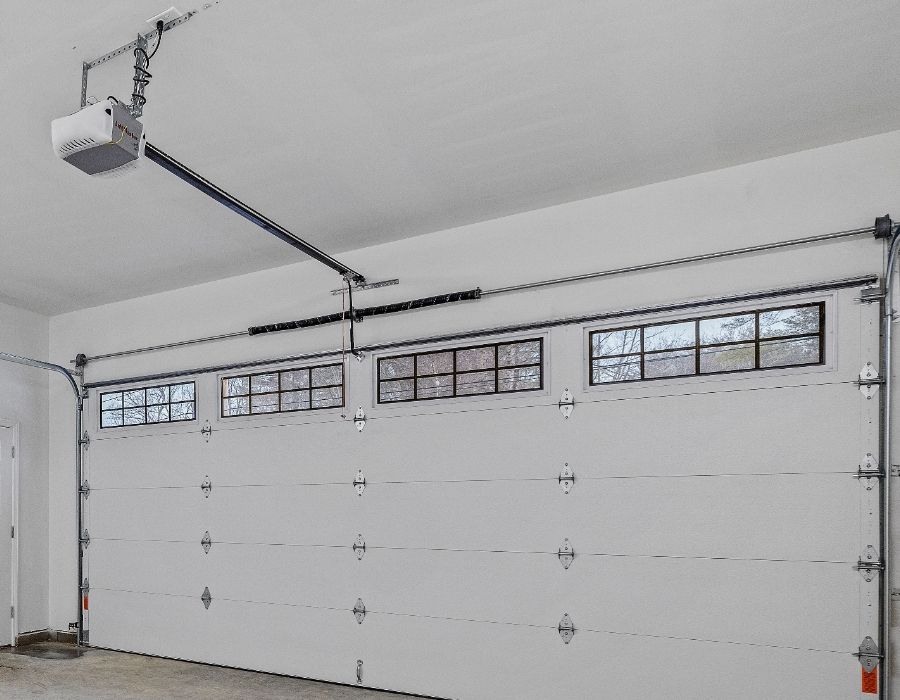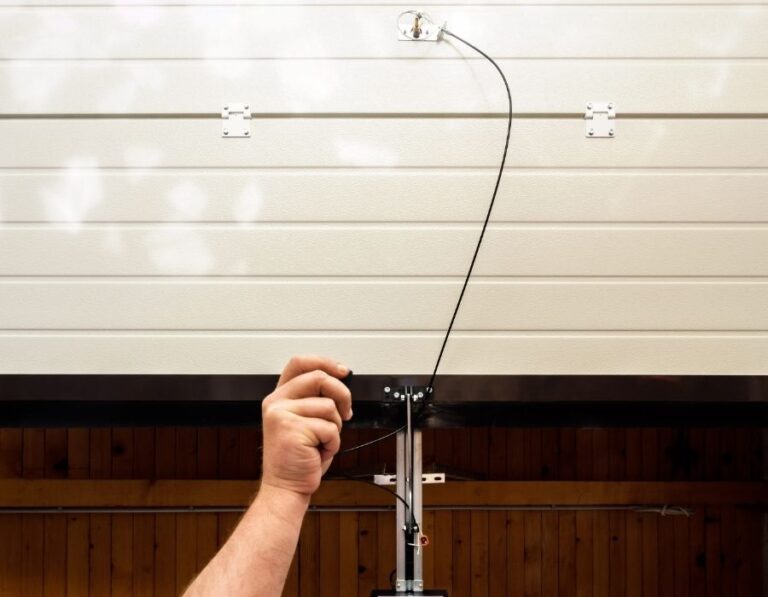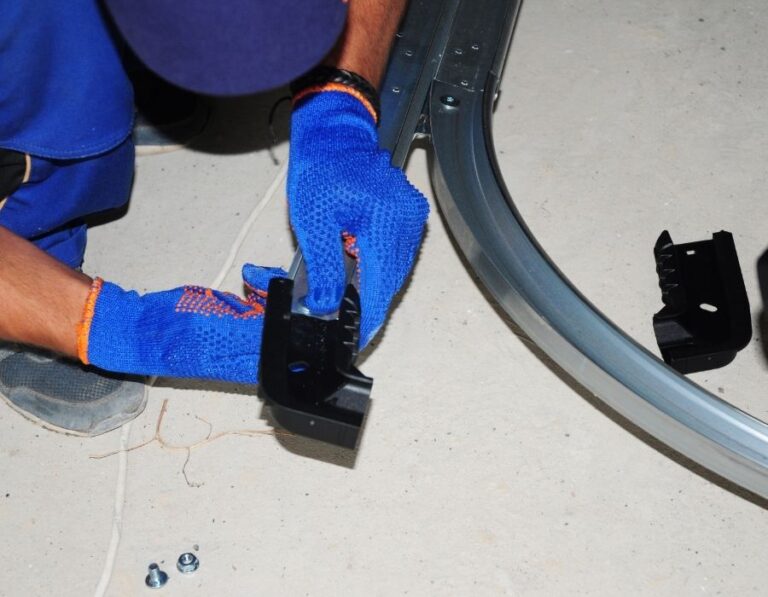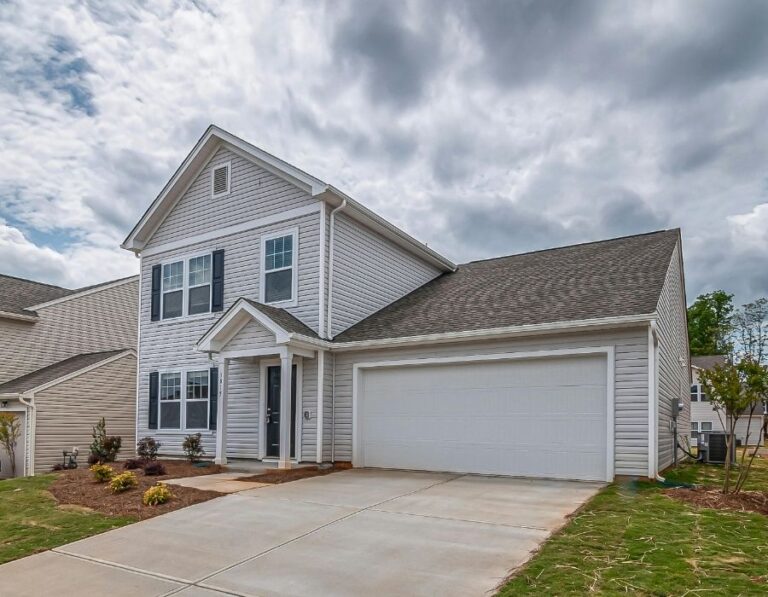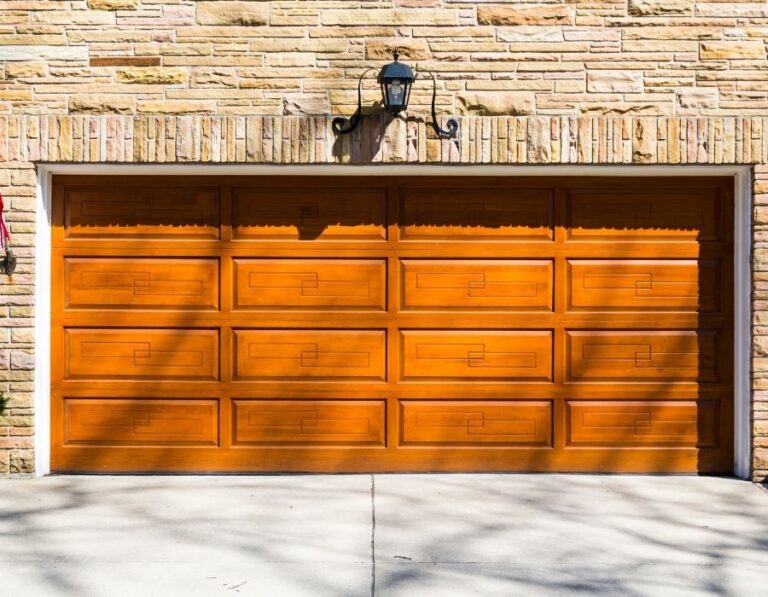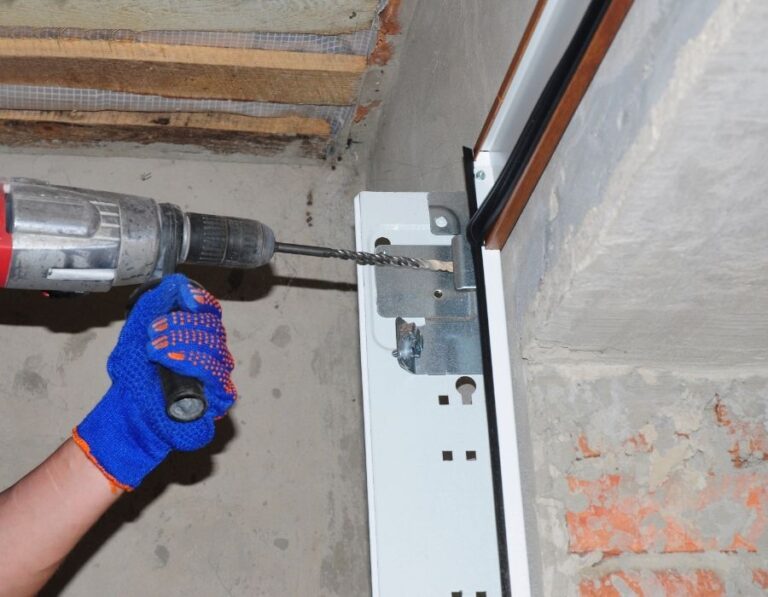5 Signs Your Garage Door Needs Immediate Attention – Don’t Ignore These!
Your garage door works hard every day, often without much thought from you—until something goes wrong. As one of the largest moving components in your home, it plays a crucial role in security, convenience, and curb appeal. But like any hardworking system, it’s prone to wear and tear.
When your garage door starts acting up, it’s not just an inconvenience—it can become a safety hazard or lead to expensive repairs if left unchecked. In this blog, we’ll walk you through 5 clear warning signs that your garage door needs immediate attention, along with tips on what you can do about them.
Let’s dive into these red flags so you can catch problems early and keep your garage door running smoothly!
1. Unusual Noises During Operation
Your garage door isn’t supposed to sound like a haunted house soundtrack every time it opens or closes. Grinding, squeaking, or banging noises aren’t just annoying—they’re warning signs of underlying issues that need immediate attention.
- Grinding noises often indicate worn-out rollers struggling to glide along the tracks.
- Squeaking sounds usually mean moving parts need lubrication, such as hinges, rollers, or springs.
- Banging or popping noises are more serious and often point to spring failure or misaligned tracks.
While a quick application of silicone-based lubricant might temporarily hush the squeaks, persistent or worsening noises usually mean a deeper issue that needs professional inspection. Ignoring these sounds could lead to more severe damage to your garage door system, including costly repairs or even total system failure.
FAQ: Can I fix a noisy garage door myself?
Yes, basic lubrication is a DIY-friendly task, and it’s a great first step. However, if the noise persists or if it involves springs, tracks, or motor components, it’s best to call a professional technician. These parts are under high tension, and attempting repairs without proper tools and experience can be dangerous.
2. Slow or Uneven Movement
If your garage door seems slower than usual or moves unevenly as it opens or closes, it’s a clear indicator that something isn’t functioning correctly.
- Slow Movement: This often suggests the motor is straining or beginning to fail. It could also be due to worn-out rollers, lack of lubrication, or increased resistance along the tracks.
- Uneven Movement: This typically points to worn-out springs, misaligned tracks, or frayed cables. These components are essential for even weight distribution and smooth operation.
Over time, these small issues can cause significant strain on your garage door opener, potentially leading to a complete system breakdown if left unaddressed.
Checking for obstructions or debris in the tracks might offer a quick solution, but if the problem persists, professional attention is required. Ignoring this sign could lead to damage to other critical components of the garage door system.
FAQ: Why does my garage door move unevenly?
Uneven movement is commonly caused by a broken cable, damaged spring, or misaligned tracks. These components are critical to your garage door’s balance and operation, and professional intervention is essential to address the root cause safely.
3. Garage Door Won’t Fully Open or Close
When your garage door refuses to fully open or close, it’s more than just an inconvenience—it’s a security risk and a sign of underlying mechanical or electrical problems. This issue often stems from a few common culprits:
- Misaligned or Dirty Safety Sensors: Located near the base of your garage door, these sensors prevent accidents by detecting obstacles. Dust, misalignment, or a faulty sensor can disrupt the door’s operation.
- Damaged or Obstructed Tracks: Bent, warped, or blocked tracks can prevent the door from gliding smoothly.
- Malfunctioning Opener: A failing motor or electrical issue in the garage door opener could also be at play.
Start with a quick inspection of the safety sensors. Ensure they’re clean, properly aligned, and free from obstructions. You can also check for visible track damage or debris buildup. If these simple steps don’t resolve the issue, it’s time to call a professional technician.
A garage door that doesn’t close properly compromises the safety and security of your home, leaving your property vulnerable to intruders or environmental damage.
FAQ: Can faulty sensors stop my garage door from closing?
Absolutely. Dirty, blocked, or misaligned safety sensors are among the most common reasons a garage door won’t close. Start by gently cleaning the sensors and ensuring they’re properly aligned. If the problem persists, a professional may need to inspect or replace them.
4. Sagging Garage Door Sections: More Than Just an Eyesore
A sagging garage door isn’t just an aesthetic issue—it’s a serious safety and operational concern. When your garage door appears uneven or drooping while partially open, it’s usually a sign of balance issues, worn-out springs, or misaligned tracks.
Over time, daily use and tension loss in the springs can cause the door to lose its balance. An unbalanced door doesn’t just look off—it strains the opener, wears out other components faster, and increases the risk of a sudden failure.
You can perform a simple balance test to check:
- Disconnect the opener and manually lift the door halfway.
- Let go and observe. A balanced door will stay in place, while an unbalanced one will fall shut or shoot upward.
If your door fails this test, it’s time to call a professional technician. Adjusting balance typically involves fine-tuning high-tension springs, which can be extremely dangerous without the right tools or expertise.
FAQ: How do I know if my garage door is unbalanced?
A properly balanced garage door will stay in place when manually lifted halfway. If it falls shut or moves up on its own, it’s a clear sign of an imbalance issue that needs professional adjustment.
5. Visible Wear and Tear on Hardware
Your garage door is made up of numerous critical components—cables, springs, rollers, and weather stripping—all working together to ensure smooth operation. Over time, these parts naturally wear out, and when they do, they send out visible warning signs you shouldn’t ignore.
- Frayed cables can snap without warning, causing the door to fall abruptly.
- Rusted or weakened springs lose tension and risk sudden failure.
- Cracked weather stripping compromises insulation and allows moisture and pests into your garage.
- Bent or misaligned tracks can prevent your door from moving properly.
While tasks like replacing weather stripping are manageable DIY projects, other components—like cables and springs—are under extreme tension and require professional expertise. Mishandling these parts can result in serious injury or further damage to the garage door system.
FAQ: Can I replace garage door cables myself?
No. Garage door cables are under immense tension and can snap or recoil unpredictably if mishandled. Replacing cables requires special tools and experience, and it’s a job best left to professional technicians.
Why Timely Repairs Matter: More Than Just Convenience
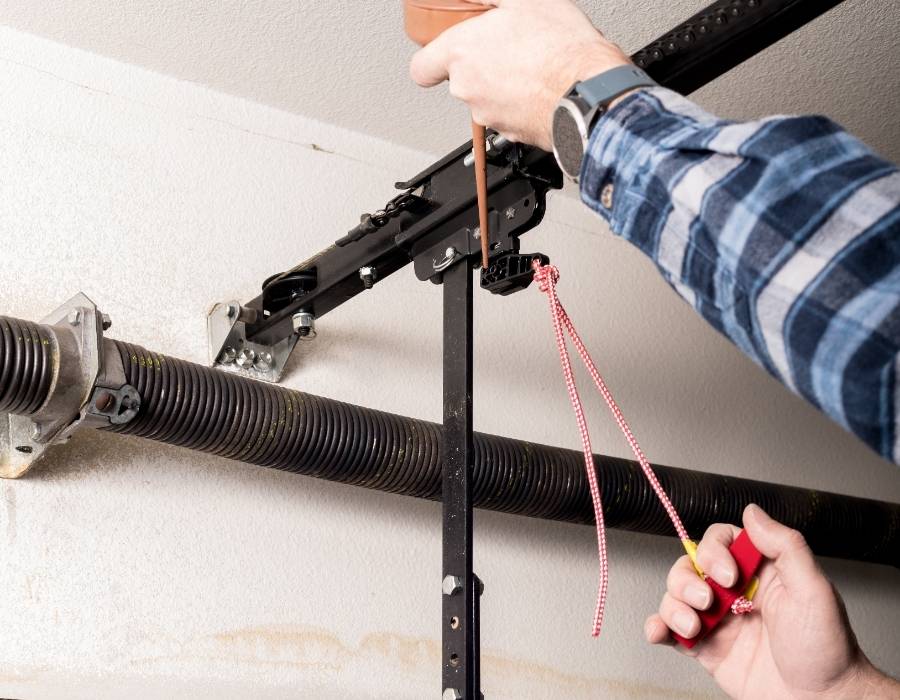
When it comes to garage door repairs, time is of the essence. What starts as a minor squeak, a slow-moving door, or a frayed cable can quickly spiral into a major malfunction—one that’s not only more expensive to fix but also potentially dangerous.
Delaying repairs can lead to increased costs as small, manageable issues like worn rollers or misaligned tracks can escalate into significant damage to the motor, opener, or other essential components. A malfunctioning garage door also compromises your home’s security, leaving an easy access point for intruders. Beyond the financial and security risks, there’s also the very real concern of safety hazards. Broken cables, weakened springs, or misaligned doors pose serious risks of injury or accidents to you, your family, and your property.
Timely repairs aren’t just about avoiding inconvenience—they’re about protecting your home, your loved ones, and your wallet. Regular inspections, routine maintenance, and immediate professional repairs ensure your garage door stays safe, functional, and reliable. Treat your garage door like the vital home system it is, and it will reward you with years of smooth operation and peace of mind.
A Well-Maintained Garage Door is a Safer, Smarter Choice
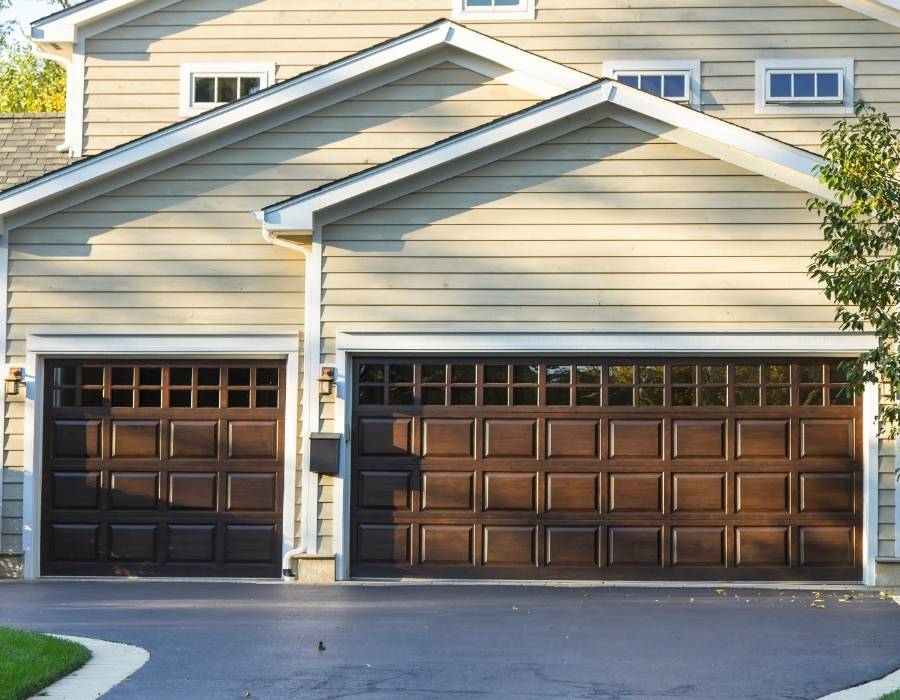
Your garage door isn’t just a functional feature—it’s a key player in your home’s safety, security, and convenience. Ignoring early warning signs, such as unusual noises, slow operation, incomplete movement, sagging sections, or visible hardware damage, can quickly turn minor issues into costly repairs or even serious safety hazards.
By staying proactive with regular maintenance and timely repairs, you’re not only protecting your investment but also reducing risks and ensuring your garage door operates smoothly and reliably every day.
Don’t wait for a small concern to snowball into a major problem. Take action today, prioritize your garage door’s health, and enjoy the peace of mind that comes with a safe and efficient system.

